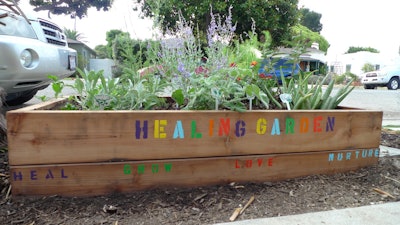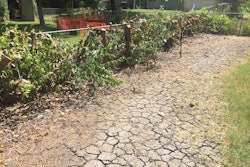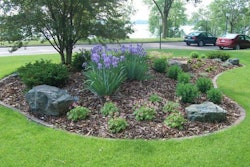 Healing gardens can be used to grow plants that have medicinal qualities.
Healing gardens can be used to grow plants that have medicinal qualities.Photo: glad.is
From increasing a home’s value to creating private havens, connecting people to nature and benefitting insects, wildlife and larger ecosystems, the work of professional landscapers and landscape designers has far-reaching value. A sometimes overlooked benefit of a well-maintained landscape is improving the health of its inhabitants.
For centuries, humans have used plants for their healing properties.
The following are some common remedies you can offer clients in their gardens (although, as with any medication, always consult a medical professional before taking herbal remedies):
- Dandelions have gotten a bad rap as weeds, but they can be used to help treat eczema, arthritis and intestinal disorders. They’re also an effective diuretic and a good source of potassium.
- Rosemary oil can be used as an antibacterial and anti-fungal, and its carnosic acid may reduce the risk of Alzheimer’s disease by improving brain circulation.
- Well-known for its distinctive fragrance, lavender has anti-inflammatory and antiseptic properties and can also be used to treat anxiety, migraines, insomnia and depression.
- Treat burns, cuts and skin infections with the clear gel from an aloe vera
- Lemon thyme can help children with upset tummies and also has an antibiotic and anti-fungal properties.
- Sunflowers can be used to treat colds and coughs.
- Peppermint is known for a wide range of healing benefits, from aiding digestion to soothing headaches, skin irritations, nausea, pain, diarrhea and flatulence.
- In addition to relieving toothaches, catnip is thought to repel mosquitoes 10 times more effectively than DEET.
- Sweet basil is another effective insect repellent, but it is also used to treat stress, diabetes and asthma.









